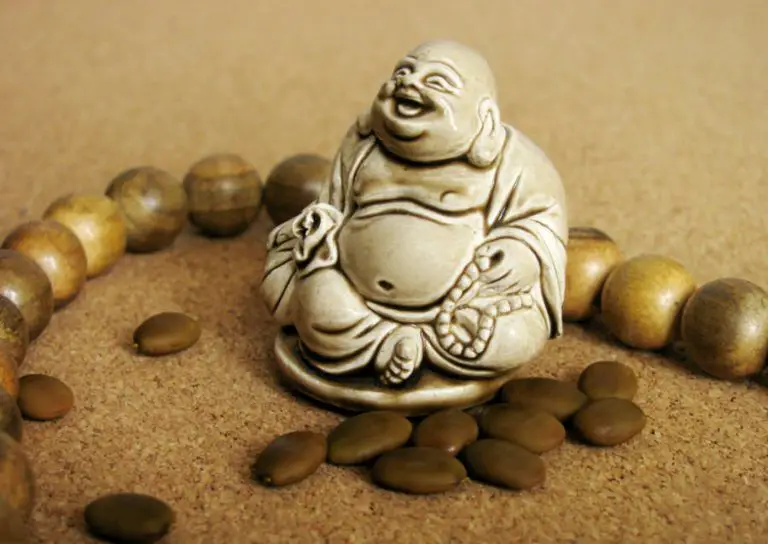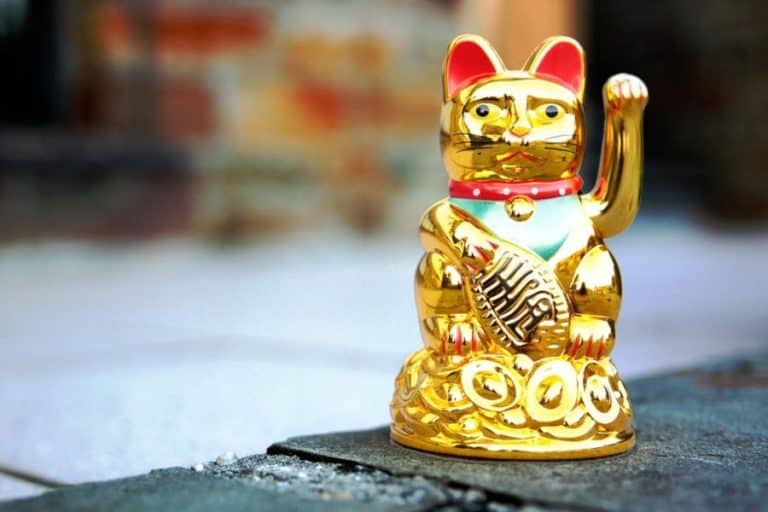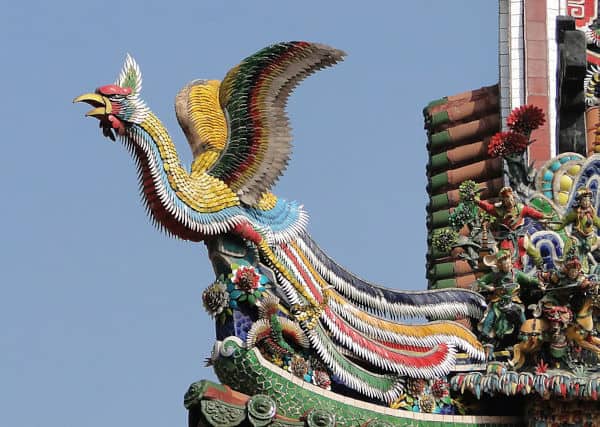Feng shui, as we all know, is an ancient Chinese system that aims to balance people with their surroundings through the utilization of energy. Feng shui principles have been utilized in designing to help choose a building’s location and orientation, as well as where to place various interior items like furniture, plants, and sculptures.
If you’re buying or renting a new home and want to get off to a good start there, you might want to use some feng shui principles in your new home and do some feng shui rituals when it’s time to move.
To begin, it is difficult to discover a nice home that satisfies all of your needs and is Feng Shui compliant. On the other hand, if you move into a home with poor Feng Shui, it could be more expensive and challenging to fix such issues than you might think. Also, it’s better to find a place with good Feng Shui from the start than to have to fix problems after they start affecting your life.
As a result, moving into a new place can be both stressful and exhilarating. A blank canvas offers a wide variety of chances to design an environment that inspires us and our families.
However, this same blank canvas can also be intimidating because the energies of previous occupants might affect how you feel in the space, not to mention the fact that your new home is still empty and lacks furniture and a purpose that you haven’t yet given it.
Here are some ideas for making an energetically positive first impression at your new house.
Choosing the Right House According to Feng Shui
Feng Shui House Shape
Rectangular, square, stepped, and round are all auspicious shapes for a feng shui property. Oddly shaped or oddly shaped homes, especially those that are L-shaped or have missing corners, or have other difficult floor plans, pose problems that need feng shui remedies.
Here are some examples of various shapes of house shapes. These examples are derived from the “Ten Books about Fengshui of Traditional Chinese Houses” (改良陽宅十書 – Gai Liang Yang Zhai Shi Shu).

The house plan’s front end is narrow, but the back end is wide and stable. This shape denotes prosperity, social standing, and comfort. The family who lives in the house will have many descendants and will be wealthy.
This house plan is appropriate for either saints or ordinary people. The inhabitants will be wealthy, and to honor the family, their descendants will hold government positions.


The left side of the home is narrower than the right side. This house is fortunate for persons with noble personalities. This house would bring wealth and success to the family. However, this family may have only a few male descendants.
The right side of the home is narrower than the left side. This house is not suited for a place to live Residents would struggle to make a wealth and would be limited in number. The descendants would be dumb. The family would have property at first but lose it all in the end.


The house plan’s front end is wider than the back end. A house in this shape resembles a coffin. The family residing within would frequently feel uneasy. The people who live there will be sad and cry over their lost money and family members.
Feng Shui House Location
Here are some feng shui guidelines to help you when relocating to a new home.
- A mountain behind your house is good feng shui for construction because it brings abundance to the front door.
- Water is one of the most significant elements in Feng Shui and is thought to provide good fortune and luck. Flowing water can bring prosperity and increase positive qi in an area.
- You should never live near a cemetery, hospital, dumps, or prison. Such locations are thought to be yin in nature and unsuitable for a home.
- Feng Shui poison arrows, such as T-intersections, are considered unlucky in Feng Shui. In such a scenario, there will be numerous bright lights pointed in your direction as well as fast-moving vehicles, which all produce negative energy and could be dangerous for anybody residing in this place. Family disagreements and a lack of peace among family members are regular negative effects of such a housing arrangement. The same is true for church steeples and tall buildings.
- A dead-end road can cause a pooling of chi energy, which gets stagnant and cannot easily enter your home.
- Homes at the end of a street are in a tough situation because all of the chi energy will flow towards your home.
- A positive-energy neighborhood can offer positive Qi to your home. Be aware of the surroundings, whether they are well-kept and maintained, whether the trees are prospering or barely surviving, and how you feel in this particular place. A good, positive neighborhood and community will be reflected in its residents’ homes.
If you can’t avoid any of these unlucky elements, there are several feng shui cures you may use, such as landscaping, walls, water features, and so forth.
Take a Look at the House
Just by looking at a place, you can tell right away if it has good energy or positive Qi. You should look at every aspect of a property before making your decision, including the front door, the interior, how clean and light it is, and whether or not it has plants. According to Feng Shui, clean environments and greenery attract good luck and fortune.

Feng Shui Tips for Different Parts of House
When you move into a new house there are many feng shui suggestions for the arrangement of the different parts of the house. While it is hard to use all of these suggestions (unless you are building a new house), I think it is a good idea to know them and use as many as you can. Some of them are:
- A straight road leading to the front door should be avoided since it can act as a poison arrow. Instead, go for a home with a curving drive-through.
- The entrance door should always open inward, never outward. This permits chi energy to enter and flow effortlessly from the outside.
- The kitchen should preferably be at the back of the house. The worst place for a kitchen is close to or just alongside the front door area or foyer.
- Bedrooms are best placed in the back of the house. Never put a bedroom on the ground level beneath an upper-floor bathroom.
- A closet or an en suite bathroom shouldn’t be next to the bed.
- Avoid placing a bathroom door or closet opposite the front door since these unlucky locations have a detrimental impact on prosperity and health.
- A bathroom should not be installed beneath a stairwell. Water is said to be unlucky for generational wealth.
Related reading: Avoid Bad Feng Shui: 12 House Features to Improve – Opens in new tab
Check out the History of the House Before Move In
When thinking about moving into a new home, consider one of the most significant Feng Shui tips: learn about the past of the house.
Even after we’ve moved to a different area, our homes retain our energy. This signifies that the house you’ll be moving into has “predecessor qi” from past occupants. Even if you are the first person to dwell in your house, the land you live on can contain predecessor qi from previous residents. If at all possible, look up the past of the place you intend to move into in order to discover more about the energy that is already present there.
So, if a house has a history of unpleasant happenings, be aware that it can have an affect on your life as well. Untimely deaths, a trend of divorces, miserable households, or, on the other hand, a pattern of happiness and abundance are all things you should try to find out about the former inhabitants of the house before considering moving there.
Want to learn more about Feng Shui? Take a look at these Courses and Books – Aff.link
Feng Shui Tips Before Moving Into Your New House
Check, Repair, or Remove Everything Before Move In
Check that everything works properly as you move into your new home. Take some time to ensure that everything is in good working order. Broken items in your home may indicate weakening energy or barriers. They are also a continual reminder of what you “should” do, which can lead to feelings of guilt. As a result, it is critical to fix or remove whatever is broken.
Check the burners, outlets, hinges, and other parts of your home, and make a plan to fix anything that needs repair as soon as possible. This includes any items that may have been damaged during the move. Fix it if it’s important to you. If not, then let it go.
Leave the Old Behind to Make Space for the New
Feng shui includes practices for removing negative energy from an area so that new, harmonious energy can be introduced. Throughout the procedure, harmony is greatly emphasized. One of the finest places to start is to clear your living space of clutter and bring only what you need. You should be getting rid of stuff as you pack even before you move. Old brooms and mops are among the items you should get rid of. Even if they are still helpful, they carry your “old troubles,” which you do not want to “sweep” into your new home.
Make a place for everything once you’ve moved into your new house. If your house is overly cluttered, it may indicate that you aren’t open to acquiring anything new; the same can be said for your life. Allow your move to be a chance for the universe to bring you new blessings by leaving some room for it to fill.
Related Reading: Common Things you Should NOT Keep at Home According to Feng Shui – Opens in new tab

Choose an Auspicious Date for Moving
It is critical to select an auspicious day to move into your new home. The auspicious day for moving will be chosen from: Cheng Day (which means “accomplishing in everything”), Horse Day (the sixth day of a lunar month), Ecliptic Day (a day good for everything), and San He Day (a triple harmony day).
Inauspicious days like Bai Day (a day of failure), Break Day (a day of misfortune), Heidao Day (a day awful for everything), and other taboo days in folklore should be avoided. In addition, if a day offends your family member’s zodiac sign, it is not suitable for relocation.
Feng Shui Tips for Preparing Your New Home Before You Move
You should prepare your new house before moving day to guarantee that everything is ready when you arrive on the official moving date.
- Before moving into the new house, clean the house and leave the doors and windows open for two or three days to allow the house to ventilate and bring in the auspicious air.
- Decorate your home with flowers, music, and a bowl of fresh fruit. Oranges are great. Oranges have a highly bright and refreshing scent and color, and they are a source of dynamic yang energy. You can use an orange essential oil mist or fresh orange peels. Spray this mist over your home, paying special attention to corners and closets that may hold stale energy.
- Smudging, or burning plant material, is another method for clearing the room of any stagnant or blocked qi and inviting in positive, vibrant qi. Sage and palo santo are two of the most common herbs that can be used in this manner, but there are many other alternatives, and you may want to look into species native to your area.
- Choose a bright color for wearing and decorations on the moving day. A bright color will infuse your home with warmth and pleasant energy. Before selecting a color, research its meaning.
- You should also buy a gift for the house. This ought to be a brand-new item that you adore. This item could be a candle, a piece of art, or a piece of furniture. Its goal is to bring happiness into your home.
Related Reading: Eighteen Things that Bring Luck to Your Home According to Feng Shui–Opens in new tab
Moving into Your New Home Feng Shui Tips
People often follow traditional feng shui tips and rituals when they move to a new house. Since moving to a new home is a significant life event, the older generations of Chinese families strictly follow these guidelines because they want to be as lucky as possible.
You can modify the rules to suit your needs. Follow the tips and traditions that make sense to you the most, to bring in good luck.
Move into Your New Home Before Sunset
You should move into your new home in the morning or around noon, rather than after sunset and at night. Otherwise, it has the symbolic meaning of working day and night, leaving early, and returning late, according to Feng Shui.

Choose an Auspicious Hour for Bed Installation
Bed installation in your new home is a vital task that must be completed at auspicious hours. Check the time of day and select the most favorable hour for bed installation. If there isn’t an auspicious hour to set it up on the day of the move, lean the bed against the wall and wait until there is. After you’ve installed the bed, you should have someone born under the Dragon sign sit on it first.
Buy New Pillows for Your New Home
According to Feng shui guidance for moving into a new home, your pillows are quite important. If you believe in Feng Shui, you should only bring new pillows to your new home. So, if you’re planning a house transfer, make sure to buy the same amount of pillows as your family members.
Once the bed has been placed and set up, you should arrange pillows on the bed for each member of your family. Chinese folks in Hong Kong, Singapore, and other locations still put a red pocket with HKD 138 or more inside the pillow for the auspicious meaning of ”thriving for life”.
Let water run slowly
Block all types of sinks and basins (in the kitchen, bathroom, etc.) and turn on the faucets so that the water runs slowly. It is thought to bring good fortune to the homeowner, so you might want to try it after you move into your new home.
Also, you can turn on the fans and have the air blow around the room (except for the front door), which has the beneficial meaning of prospering.
Broom The House to Drive Away Negativity
Before you move into your new home, get a new dustpan and a broom with a red ribbon tied to it. Then broom from the corner to the center of the house, and finally to the front door. This Chinese Feng Shui ritual is considered to help drive away negativity and ensure that everything in your new home is good and positive.
Worship Your God
Regardless of your belief or customs, prayer and worship before beginning something new has always been a tradition. As you move into your new home, you should worship and pray to your God to make sure that your stay in your new home is successful and enjoyable. Feng shui suggests that when entering your new home, you should first worship. Therefore, if your new home includes a place of worship, pray before bringing all of your household items and settling in.
🍀 Our “Feng Shui Master” app is your trusted companion, offering a useful guide to implementing Feng Shui principles. Try it now!
Moving into a New House Feng Shui Rituals
- Each member of the household should enter the new carrying something auspicious and meaningful.
- Usually, people bring fresh fruits that stand for different blessings, such as:
- Oranges for prosperity
- Pomegranates for opportunities
- Peaches for good health
- Apples for safety
- If you don’t want to carry in fruits, you also have the option of bringing in feng shui coins or a handbag full of money. The most important part of this ritual is that no one should enter the room with their hands empty.
- Once inside, all of the fruits and goods should be placed on a table, preferably the dining table.
- Roll a pineapple around the house while chanting particular sayings. Your household will be blessed and filled with abundance for as long as you live there.
- If possible, the person who provides for the family should carry a big plate of fresh fruits in both hands. If the family breadwinner is busy rolling a pineapple around the floor, the job can be given to the next most authoritative person. The first person to enter the house should be the person rolling the pineapple, followed by the one bringing the fresh fruit.
- Someone should bring a jar containing rice and two red pockets. This represents wealth and prosperity. To allow more wealth to enter, the container should only be half full.
- To keep your new home thriving, keep the lights on from the day you move in till the next day. To fulfill the objective of the new house flourishing, others even kept the lights on for three days and three nights.
- Additionally, switch on all of the appliances. Just turn them on for three minutes. By doing this, you make sure that the different parts of your home are “activated” and have energy moving through them.
- Bake a dessert to infuse your home with more positive energy and sweetness.
Related reading: Mastering Feng Shui Maintenance: Your Guide to Harmonious Living – Opens in new tab

What to Avoid When Move to a New House According to Feng Shui
While certain practices must be followed in order to bring peacefulness, hopefulness, and good fortune to your new home, specific actions must be avoided. Here are a few things to avoid when moving to a new home.
- Avoid using cold and white colors in your bedrooms and living room, such as white curtains and linens. In order to increase the Yang, drive out the Yin, and strengthen your family’s prosperity, you should use red and joyful colors instead.
- On the moving day, members of the home should not argue. Parents should not scold their children. Losing one’s anger should be avoided at all costs. All of these are indications of disagreement and can bring negative energy into the home. Unlucky words must be avoided.
- Do not relocate if you have a pregnant family member or a new newborn. If you must relocate, make sure that the pregnant woman is not involved in the process and that she wears a Buddha figure or fetus protection amulet.
- Don’t sleep in your new house during the day or afternoon on the day you move in. You are only able to sleep at night. Sleeping throughout the day indicates ill health and should be avoided for a few days after moving into your new home.
Housewarming
Housewarming is an important element of settling into a new home. And, according to Feng Shui, after moving into your new home, you should host a housewarming party for all of your family, friends, and neighbors as soon as possible. This is thought to bring the family prosperity and happiness.
End Words
Moving to a new home can give people the impression that they are starting a new chapter in their lives; in addition, moving is beneficial to both the spirit and the mind. It gives you the opportunity to let go of old habits and painful memories together with the trash and junk that you get rid of when you move out of your old home. When you move into a new home, using some simple feng shui principles can help you get off on the right foot, bring more harmony and positive energy into your life, and set the stage for a prosperous future.
Want to learn more about Feng Shui? Take a look at these Courses and Books – Aff.link
Here are some of the most popular feng shui rules, organized by room, from our other articles.
- Feng Shui Rules and Tips for Your Front Door and its Surroundings
- Best Feng Shui Rules and Tips for the Living Room
- Basic Feng Shui Rules and Tips for Dining Room
- Basic Feng Shui Rules and Tips for Kitchen
- Basic Feng Shui Rules and Tips for the Bedroom
- How to Feng Shui Your Bathroom
- Basic Feng Shui Rules and Tips for Staircases and How to Apply them
- Simple Guide to Feng Shui Your Workspace
- Feng Shui Your Garden: Design Your Dream Garden with Feng Shui Principles
- Feng Shui Your Baby’s Room for Optimal Well-being
Stay in Touch
 Join our newsletter by using the forms on this website or click here!
Join our newsletter by using the forms on this website or click here! Follow us on Google News
Follow us on Google News Follow us on Facebook
Follow us on Facebook
Feature Image from Depositphotos





